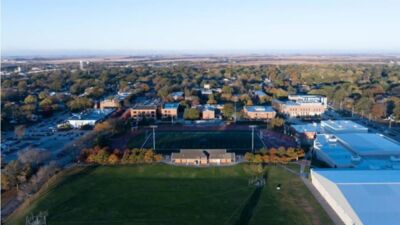What Can You Do with a Major in Geography?

The geography major at Concordia Nebraska enables students to synthesize skills from many areas and apply them to the theory and practice of geography. Taking courses in geography will expose them to the use of Global Information Systems, drone technology, Global Positioning Systems and more. But where might a degree in the field lead after graduation? From the professional to the academic, opportunities for students with a bachelor’s degree in geography are many – especially for open-minded students with wide-ranging interests!
Geography is defined as the study of the “description, distribution and interaction of the diverse physical, biological and cultural features of the Earth’s surface.” In an increasingly globalized world, it’s more important than ever to understand interactions between humanity and its many physical environments, as well as how those interactions shape trade, business, travel and everyday life.
At Concordia Nebraska, the geography major is small, only requiring students to complete 31 credits in addition to general education requirements. Therefore, many students who choose to focus on geography also find a second area of study helpful – often environmental science, history, mathematics or whatever else the student feels will complement their studies in geography.
Beyond college, studies in geography can lead students to graduate school or into the workforce. Concordia Nebraska’s partnership with South Dakota State University, offering a geography graduate school “pipeline,” is one way that students can pursue further studies in the field. With a Master of Science in geography or Geographic Information Systems, students can expand their job opportunities and broaden their knowledge base.
Professionals with the job title of “geographer” are few; however, the number of related careers open to students who study geography is far greater. For example, GIS analysts may work for government agencies or private firms, utilizing GIS databases to collect data; environmental consultants can advise agencies on environmental impact-minimizing practices and cartographers create and analyze maps to provide geographic information for organizations or the public.
Although many geographical jobs take place in office settings, field work is also very common. For example, analyzing environmental data in a national park may require you to travel throughout the area to take measurements and make observations. If you work with drones, you may fly them over outdoor areas. If you enjoy a healthy balance between field work and office work, geography could be the perfect place for you to find a fulfilling career.
Furthermore, working in the geography field can also mean serving others. Majoring in geography can lead you to map public health data, educate others as a park ranger, or protect the natural world as an environmental specialist. If you enjoy working with geographic data while also being able to interact with and serve others, careers like these may be some of your top choices.
Earning a geography degree from Concordia Nebraska is a choice that can lead you toward a successful, fulfilling career in one of many areas of service. Whether you specialize in another area besides geography or not, pursue graduate school or enter the workforce immediately, or work in an office instead of in the field, geography is a discipline that is versatile and will instill a broad skill set. Critical thinking, research and spatial analysis are just a few of the varied skills that geography courses offer to students.
The geography program at Concordia Nebraska offers students an integrative and broadly-based curriculum with a solid foundation in geographic principles and perspectives, as well as the professional skills to put them into practice. Learn more about the program here.
Interested in the geography program at Concordia University, Nebraska?
Related Stories


